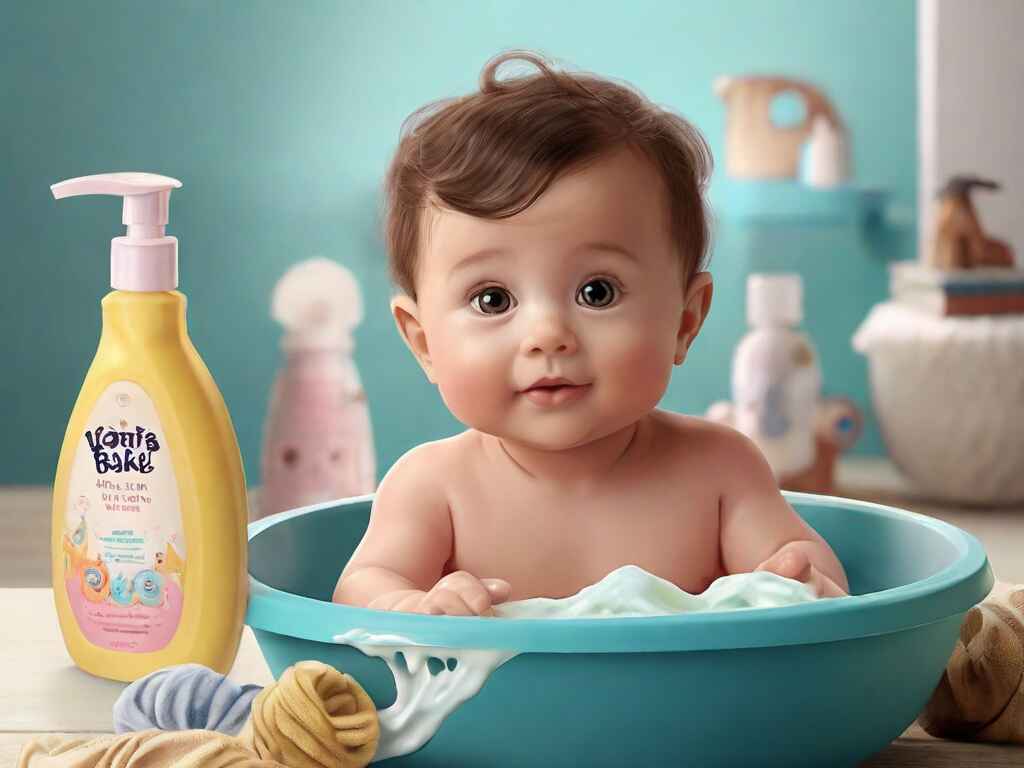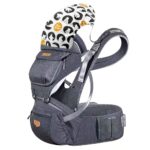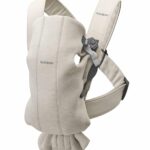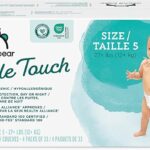Baby wash is a gentle cleanser for the overall body, while baby shampoo is formulated specifically for cleaning hair and scalp. Understanding the difference between baby wash and baby shampoo is crucial for the proper care of your infant’s delicate skin and hair.
Using the right product helps maintain the natural moisture balance of your baby’s skin and prevents irritation. Baby washes and shampoos typically contain mild ingredients that are hypoallergenic and free from harsh chemicals, making them suitable even for newborns. Choosing a product designed for your baby’s specific needs can ensure a safe and soothing bath time experience.
It’s always recommended to look for tear-free formulas to avoid discomfort during your baby’s bathing routine. By being informed about the distinct purposes and benefits of baby wash and shampoo, you can make an educated decision that supports the health and well-being of your child.
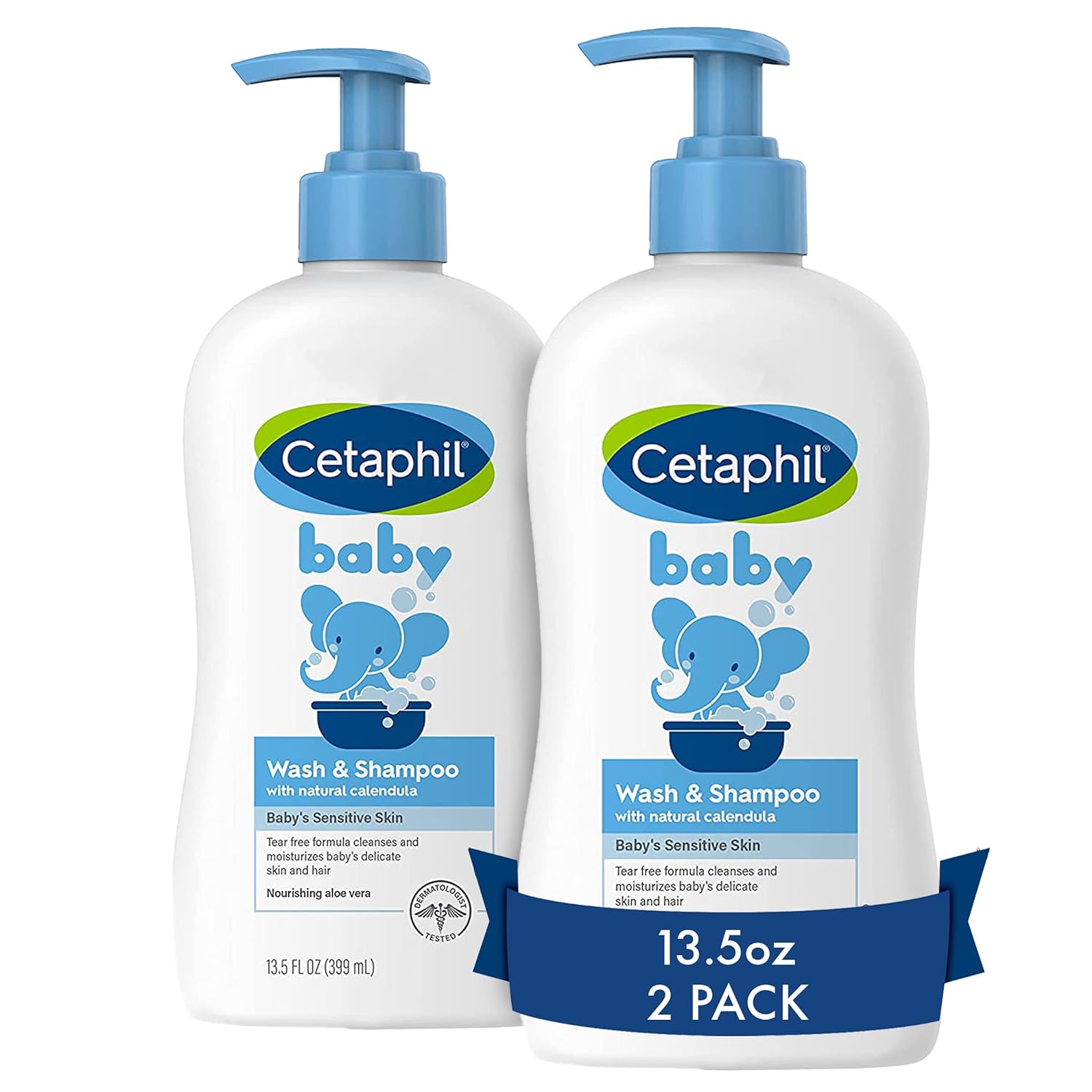
Introduction To Baby Wash And Shampoo
Welcome to the gentle world of baby care! Understanding what your little one’s skin needs is crucial. The market is full of options. But, it’s important to know the difference. Baby wash and shampoo cater to distinct needs. Here, we dive deep into their unique roles in maintaining your baby’s hygiene.
The Basics
- Baby wash is designed for the whole body.
- It’s mild and moisturizing.
- Baby shampoo focuses on cleaning the hair and scalp.
- It helps prevent eye irritation.
Both products aim for zero harsh chemicals. They leave your baby’s skin and hair clean, soft, and healthy.
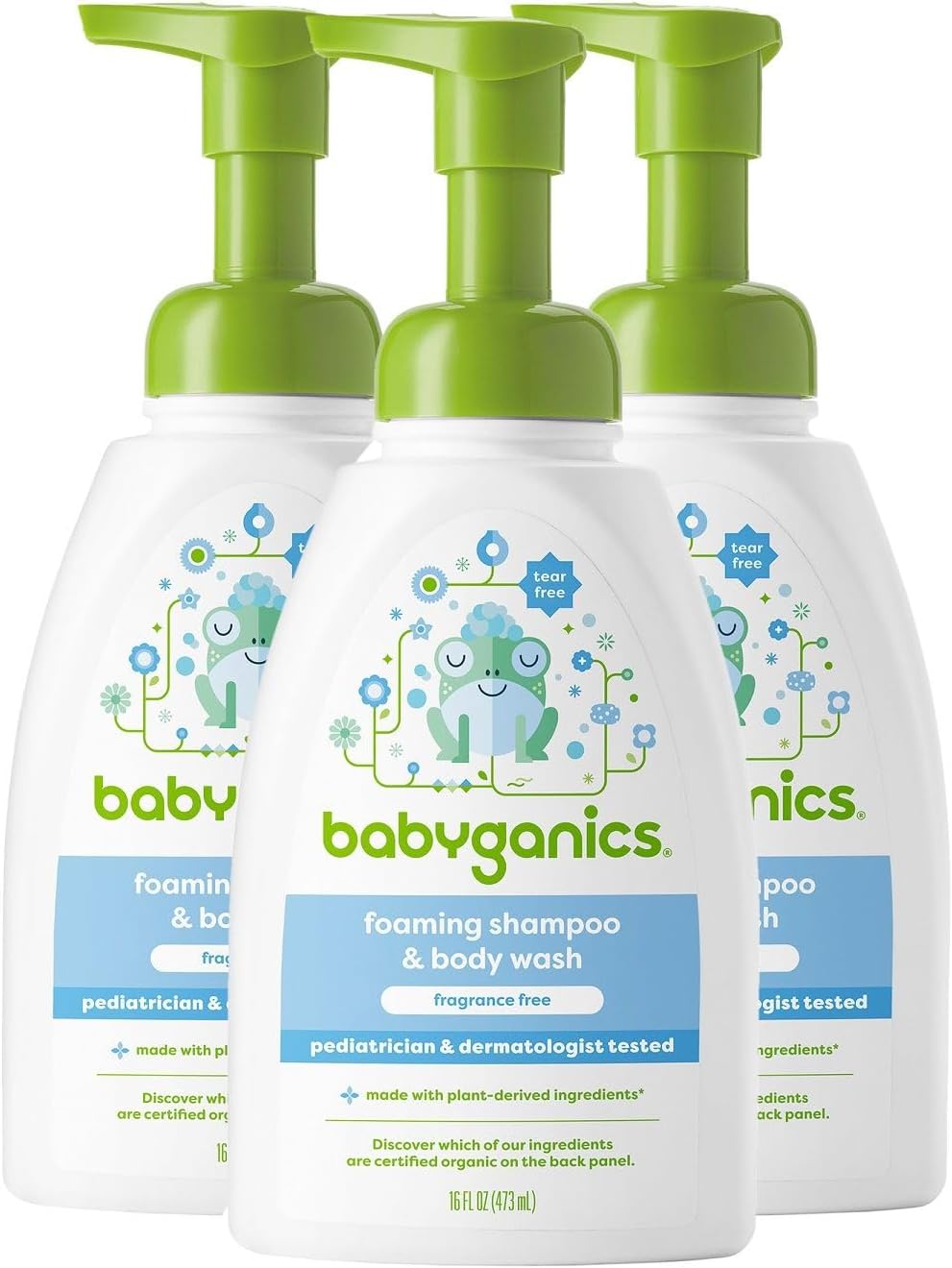
Difference Between Baby Wash and Shampoo(Importance In Infant Hygiene)
Caring for your baby includes using the right products. Infant skin is delicate. It needs gentle care. Baby washes and shampoos are formulated to protect and nurture. With the right product, you ensure your baby remains clean, happy, and healthy.
| Baby Product | Key Ingredient | Function |
| Baby Wash | Mild Cleansers | Nourishes overall skin |
| Baby Shampoo | Gentle Surfactants | Cleans hair and scalp |
The Delicate Nature Of Baby Skin
Understanding the difference between baby wash and baby shampoo is fundamental for the gentle care of infant skin. Baby wash is formulated for the sensitive body, while shampoo targets the scalp and hair, each designed to minimize irritation and cater to delicate skin needs.
Baby skin is incredibly gentle, requiring special attention for its care.
This delicate skin is different from adult skin. It’s thinner and more prone to irritation.
Baby washes and shampoos cater to these needs.
Understanding Sensitivity
Babies’ skin sensitivity calls for products that are gentle and non-irritating.
- Baby wash is a mild cleanser.
- It helps to clean the body without stripping natural oils.
- Baby shampoo cleanses the hair and scalp.
- It’s formulated to be tear-free.
Skin Ph Balance
Baby products help maintain the natural skin pH balance. This balance is crucial.
| Product | pH Level |
| Baby Wash | Neutral |
| Baby Shampoo | Gentle & Balanced |
Using the right baby wash and shampoo protects your baby’s delicate skin.
Formulation Comparison
Formulation Comparison between baby wash and baby shampoo reveals intriguing distinctions, especially when analyzing their respective roles in a child’s hygiene routine. Discussing key ingredients and chemical differences helps us better understand suitable products for babies’ delicate skin and hair.
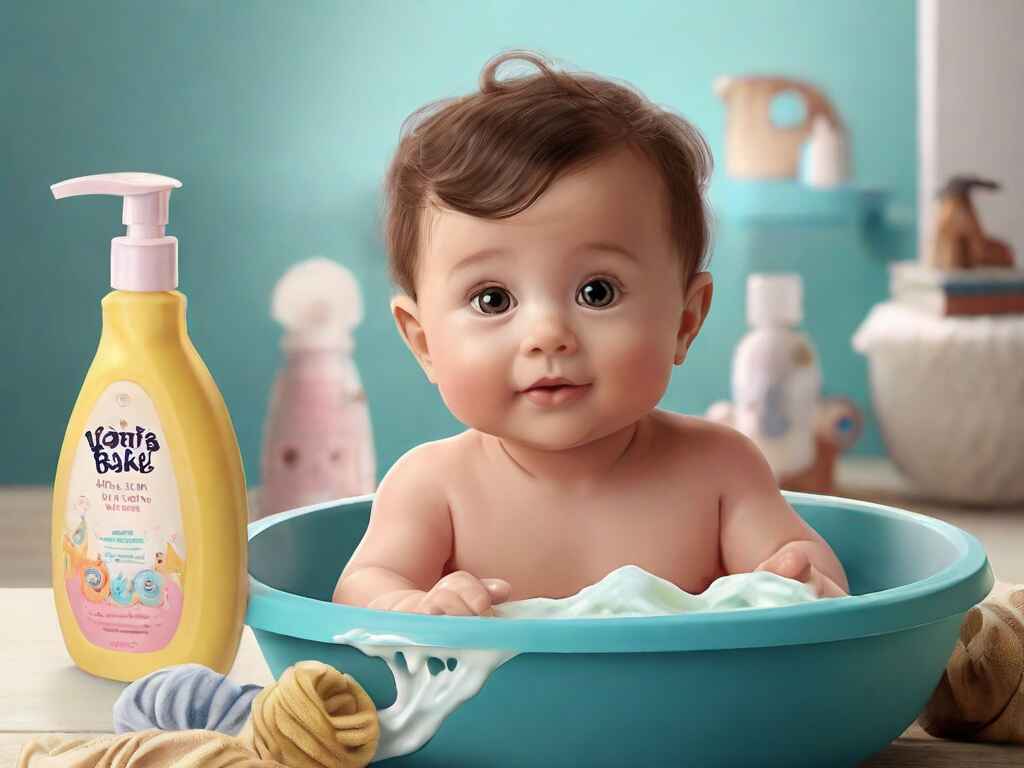
Key Ingredients
Diving into the key ingredients in baby wash vs. baby shampoo enlightens us on their intended purpose. Baby washes are often formulated with:
- Mild cleansing agents
- Moisturizing components like glycerin
- Preservatives at a minimal level
On the other hand, baby shampoos mainly contain:
- Surfactants for gentle hair cleaning
- Conditioning agents to prevent tangles
- Light fragrances to keep hair smelling fresh
Chemical Differences
Baby shampoo and wash have chemical differences designed for specific uses. Baby shampoos focus on scalp health, with:
| Ingredient | Function |
| Lauryl sulfates or sultaines | Effective yet gentle cleansing |
| Silicon-based polymers | Smoothing hair shafts |
| pH balancers | Aligning with scalp’s natural pH |
Conversely, baby washes focus on the skin with a blend of:
- Milder surfactants than shampoos
- Emollients for retaining skin moisture
- pH levels matching skin’s acidity
Understanding these nuances ensures the right product touches your baby’s skin and hair. With this knowledge, parents can make informed choices for their precious little ones.
Product Purposes Unwrapped
Unwrapping the purposes of baby wash and baby shampoo reveals a world tailored to the delicate needs of little ones. Understanding the differences helps parents choose the right product for their baby’s bath time routine. Get ready to dive deeper into these products, ensuring your baby’s skin and hair receive the best care.
Cleansing Vs. Nourishing
Baby wash and baby shampoo serve different roles. Baby wash cleanses the skin. It removes dirt without harming the skin’s barrier. Baby shampoo, on the other hand, focuses on the scalp and hair. It clears away the oil and sweat while keeping hair soft.
- Baby Wash: Mild for skin, gentle cleanser
- Baby Shampoo: Tear-free formula, keeps hair untangled
| Product | Main Purpose | Key Benefits |
| Baby Wash | Skin Cleansing | Hydrates skin, Non-irritating |
| Baby Shampoo | Hair and Scalp Care | Softens hair, Simplifies combing |
Target Areas Of Use
Baby wash is for the body while baby shampoo is for the head. Use baby wash from the neck down. It cleanses without drying the skin. Choose baby shampoo for washing hair. It gently cleanses the scalp and nourishes the hair.
- Use Baby Wash For: Chest, arms, legs, back
- Use Baby Shampoo For: Head, hair, behind the ears
Understanding The ‘tear-free’ Concept
Baby wash and shampoo are gentle. They help keep your baby clean. But what does ‘tear-free’ mean on baby products? This label makes bath time soothing. No stinging eyes for little ones. Let’s explore this more.
Safety Standards
Safety is top for baby products. ‘Tear-free’ means meeting strict guidelines. Only safe ingredients get used. Your baby’s delicate skin and eyes stay protected.
- No harmful chemicals. Gentle for your baby.
- PH balanced. Matches natural skin levels.
- Dermatologist tested. Ensures no irritation.
What Makes A Product ‘tear-free’
A ‘tear-free’ label means special ingredients. These are mild on eyes. They reduce possible discomfort. This table explains these ingredients:
| Ingredient | Function |
| Mild surfactants | Clean without irritating skin or eyes |
| Polymers | Form a protective layer, preventing tears |
| Decyl glucoside | A gentle cleaner from natural sugars |
Baby Shampoo Necessities
Caring for your baby’s delicate hair and scalp requires products specially designed with their needs in mind. Baby shampoo is one such product, formulated to be gentle, non-irritating, and soothing. Let’s dive into what makes baby shampoo a must-have for your little one’s bath time routine.
When To Use
Difference between baby wash and baby shampoo,Baby shampoo should be used whenever you wash your baby’s hair. Unlike adult shampoos, it’s crafted to keep the scalp moisturized and hair soft without using harsh chemicals. Baby shampoo can be used from the newborn stage, adapting to the changing needs of your baby’s hair and scalp as they grow.
Special Ingredients For Hair
To cater to your baby’s delicate hair, shampoos often contain specific ingredients. These ingredients nurture and protect while cleansing:
- Natural oils: Like coconut or almond oil, they nourish the scalp and hair.
- Vitamin E: It supports a healthy scalp and hair growth.
- Aloe vera: Known for its soothing properties, it keeps the scalp calm.
Remember, the right shampoo should leave your baby’s hair soft, shiny, and easy to comb. It means no tears for them and peace of mind for you.
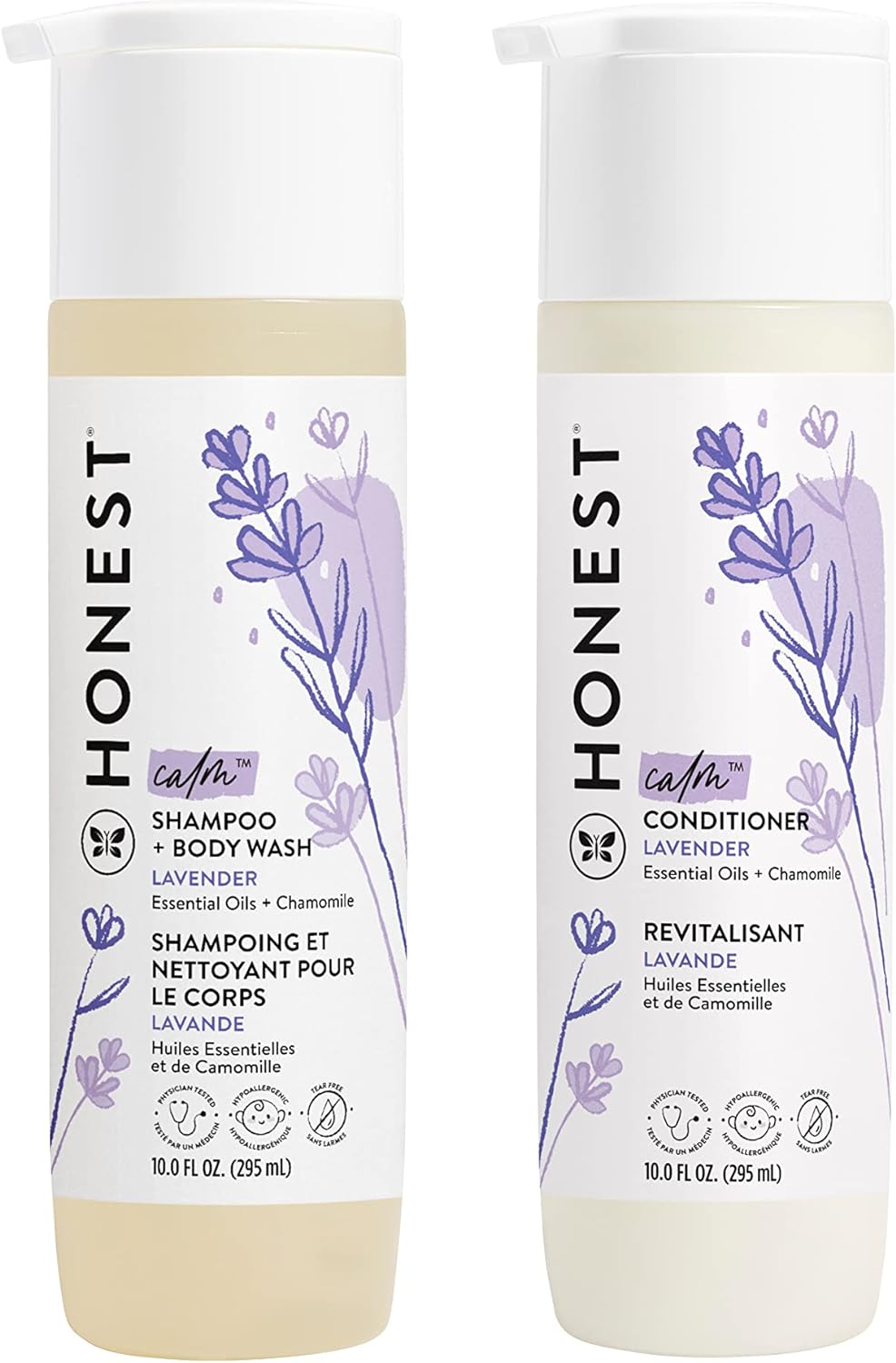
The Role Of Baby Wash
amzn.to/4dXPdAGWhen it comes to keeping your little one clean and comfortable, baby wash plays a crucial part. Unlike baby shampoo, which is designed specifically for hair, baby wash is a gentler solution suitable for a baby’s entire body. Let’s dive into what makes baby wash an essential product for your baby’s bathtime routine.
Full Body Use
Baby wash is the superhero of bath time, tackling dirt and grime from head to toe. Its formula is crafted for the sensitive skin of babies, ensuring that every spot is cleaned safely. Parents can confidently use one product for their baby’s full body, simplifying bath time while protecting their baby’s delicate skin.
- Safe for face, torso, and baby’s limbs
- Formulated to prevent irritation
- Gentle cleansing for newborns and toddlers alike
Moisturizing Effects
Baby wash doesn’t just clean; it moisturizes. The skin of a baby is much more prone to dryness than adult skin. The baby wash contains ingredients like aloe vera and glycerin that help to keep your baby’s skin soft and hydrated. With regular use, you can help maintain the natural moisture balance of your child’s skin, avoiding dryness and irritation.
| Ingredient | Benefit |
| Aloe Vera | Hydrates and soothes skin |
| Glycerin | Retains moisture |
By carefully selecting a baby wash with hydrating properties, you’ll not only clean away the day’s adventures but also wrap your baby in a blanket of moisture that keeps their skin supple and smooth.
Allergies And Sensitivities
Choosing the right products for your baby’s skin is crucial. Babies’ skin is delicate, sensitive, and prone to allergies. Baby wash and baby shampoo may look the same. Yet, ingredients differ and may affect babies’ skin. This section digs into allergens. We also explore hypoallergenic solutions.
Common Irritants
Baby products can hide common irritants. Fragrances and sulfates are top culprits. They can cause rashes and discomfort. Here’s a list of offenders:
- Parabens: These preservatives can lead to skin irritation.
- Phthalates: They disrupt hormones, causing potential harm.
- Formaldehyde: Preservative linked to skin reactions.
- Alcohol: It can be drying and irritating to sensitive skin.
- Dyes: These add color, but can aggravate baby’s skin.
Hypoallergenic Solutions
Hypoallergenic baby products aim to reduce risks. They are crafted for the most sensitive skin. Labels might not tell the full story. Always check the ingredients. Here’s how to pick the right hypoallergenic items:
- No scent is best: Unscented products are ideal for sensitive skin.
- Simple is better: Fewer ingredients minimize reaction risks.
- Look for certifications: Trustworthy labels include ‘dermatologist-tested’.
- Test before use: Do a patch test to ensure no reactions occur.
Remember: always consult a pediatrician if concerned about allergies or skin reactions. Your baby’s comfort and safety are paramount.
The Impact Of Fragrances
The Impact of Fragrances on baby products like washes and shampoos can’t be understated. Parents often scrutinize these scents. Not only do they provide a pleasant sensory experience, but they may also affect a baby’s delicate skin. Understanding the difference between natural and synthetic fragrances, as well as fragrance-free options, helps parents make informed choices.
Natural vs. Synthetic Fragrances
Natural Vs. Synthetic
Parents may wonder which is safer: natural or synthetic fragrances. Natural scents come from plants, flowers, and oils. They often appeal to those seeking botanical-based products. Conversely, synthetic fragrances consist of man-made compounds. Here, the debate lies in potential skin sensitivity and allergens.
| Natural Fragrances | Synthetic Fragrances |
| Derived from nature | Laboratory created |
| May pose allergy risks | Consistent scent profile |
| Biodegradable | Potential irritants |
Fragrance-free Options
Fragrance-free baby products are an excellent choice for sensitive skin. They lack both natural and synthetic scents which minimize irritation risks. The labels may often read ‘unscented’ or ‘fragrance-free’ to indicate they are gentle on the skin.
- No added perfumes
- Minimal irritation risks
- Suitable for babies with sensitive skin or eczema
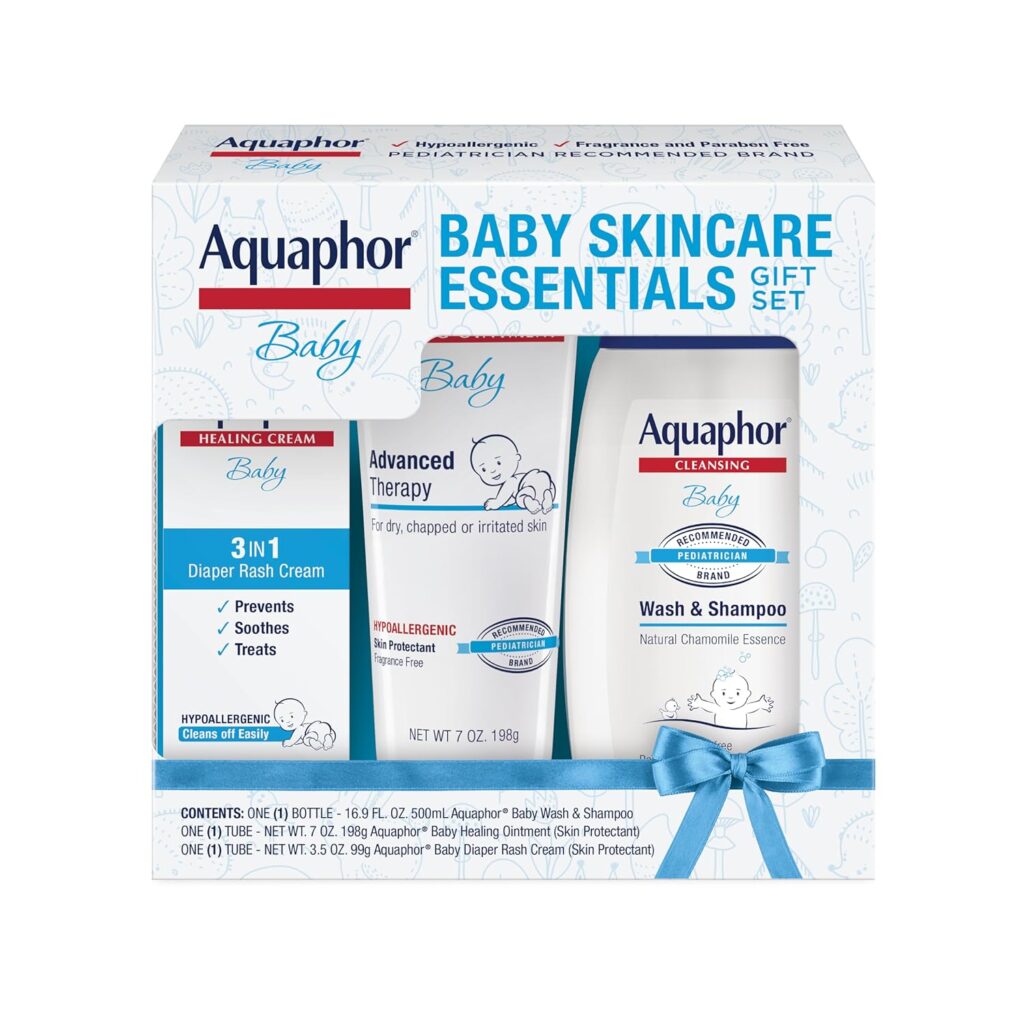
Decoding Labels And Marketing
As parents, we want the best for our little ones. Understanding baby products can be tricky with all the choices out there. ‘Baby wash’ and ‘baby shampoo’ often sit side by side on store shelves, their labels promising gentle care. Let’s decode those labels and understand the marketing behind them to make informed decisions.
Reading Product Labels
When picking baby care products, reading labels is key. Baby wash and shampoo labels might look similar, but their ingredients serve different functions. Lather, rinse, and repeat, isn’t just a catchy phrase; it refers to the different formulas designers for hair or skin.
- Baby wash is formulated for sensitive skin.
- Baby shampoo focuses on being gentle on the eyes and effective on the scalp.
Key ingredients to look for include:
- No-tear formulas: Safe for baby’s eyes.
- Moisturizers: Protect baby’s skin from drying out.
- Hypoallergenic: Ideal for all skin types, especially sensitive skin.
- Paraben-free and sulfate-free: Less likely to irritate.
Check the back of the bottle for a full ingredient list. This helps avoid potential allergens or irritants.
Marketing Tactics
Marketing plays a big role in the products we choose. Companies use buzzwords like ‘natural’ and ‘organic’ to grab our attention. It’s important to look past the fancy packaging and focus on what really matters. Here are some common tactics:
| Marketing Term | What it Often Means |
| Natural | May contain plant-derived ingredients. |
| Organic | Should meet strict production standards. |
| Free of… | No certain chemicals, but others may be present. |
Images of cute babies and soft colors on labels are designed to convey safety and gentleness. Recognize these strategies and base your decisions on the ingredients and your baby’s needs.
Understanding the difference between baby wash and shampoo helps parents choose the safest and most effective products. So next time you’re in the baby aisle, read those labels and see past the marketing to find the best match for your baby’s precious skin and hair.
Professional Recommendations
Choosing the best products for your baby’s skin requires understanding the nuances between baby wash and baby shampoo. Here, we delve into professional input to clarify these differences and help you make informed choices for your little one’s needs.
Pediatrician Advice
Pediatricians emphasize gentle care for a baby’s sensitive skin. For infants, experts recommend using mild, hypoallergenic, and tear-free formulas. These guidelines prevent skin irritations and eye discomfort during bath time. Pediatricians also suggest multi-purpose products that can act as both wash and shampoo for convenience without compromising on softness.
- Avoid harsh chemicals: Always look for products free from parabens, sulfates, and phthalates.
- Maintain skin pH: Choose baby washes and shampoos that maintain a pH of around 5.5, matching healthy skin pH.
- Minimal fragrance: Pick items with little to no fragrance to minimize the risk of allergic reactions.
- Moisturizing properties: Products with natural oils and moisturizers support a baby’s delicate skin barrier.
Dermatologist-approved Products
Dermatologists contribute expert insights on maintaining baby skin integrity. They underscore the importance of nurturing products. Baby shampoos are specifically formulated for the scalp, aiding in the removal of cradle cap without stripping natural oils. Baby washes, on the other hand, are designed for the body, focusing on mild cleansing without drying.
| Feature | Baby Wash | Baby Shampoo |
| Use | Body | Scalp and Hair |
| Formulation | Gentle cleansers | Mild cleansers specific for hair |
| Hydration | Moisturizing ingredients | Formula that doesn’t dry the scalp |
| Skin Sensitivity | Extra sensitive for body skin | Gentle for baby’s scalp |
Dermatologists recommend fragrance-free and non-comedogenic products that won’t clog pores. Look for stamps of approval from dermatology associations, which indicate that the product has been rigorously tested and deemed safe for baby skin.
- Examine labels: Dermatologist-approved icons ensure product safety and quality.
- Patch test products: Test on a small skin area to check for reactions before full use.
- Simple ingredients: Shorter ingredient lists often mean fewer irritants.
The Rise Of Organic Baby Products
Parents today seek the safest options for their little ones. This shift leads us to the growing popularity of organic baby products. Ingredients in these products are sourced from natural, chemical-free environments. They promote health while being gentle on delicate skin. Organic baby washes and shampoos now cater to concerned mothers and fathers seeking pure, non-toxic alternatives for their infants.
Benefits Of Going Organic
Choosing organic baby wash and shampoo offers multiple advantages:
- Reduced Risk of Allergies: No harsh chemicals means fewer allergic reactions.
- Gentle on Skin: Suitable for baby’s sensitive skin, preventing irritation.
- Environmental Impact: Organic ingredients support eco-friendly farming practices.
Certifications To Look For
Not all organic products are equal. To ensure authenticity, check for these certifications:
| Certification | Description |
| USDA Organic | Signifies products with 95% or more organic content. |
| ECOCERT | International organic certification that ensures environmentally friendly production. |
| COSMOS Organic | Guarantees genuine organic elements and transparent manufacturing processes. |
User Experiences And Reviews
Parents always want the best for their little ones. Choosing between baby wash and shampoo can be confusing. Both products are gentle for babies. But they serve different needs. Baby wash is for the body. Baby shampoo is for the hair. Parents’ experiences and reviews can help you decide. Let’s dive into what they say.
Parent Testimonials
- “The baby wash is so mild and perfect for my son’s sensitive skin,” shares a mom from California.
- “We switched to a tear-free shampoo and bath time is now a joy!” reports a dad from Texas.
- “I love that the baby shampoo doesn’t irritate her eyes,” mentions a first-time mom from New York.
- “A 2-in-1 baby wash and shampoo saves us time,” explains a busy parent from Florida.
Popular Brands Reviewed
| Brand | Type | Avg. Rating |
| Johnson’s Baby | Wash & Shampoo | 4.5/5 |
| Aveeno Baby | Wash | 4.7/5 |
| Cetaphil Baby | Shampoo | 4.6/5 |
| Burt’s Bees Baby | Wash | 4.3/5 |
| Mustela | Shampoo | 4.8/5 |
Parents rave about the gentleness of Johnson’s Baby wash and shampoo. Aveeno Baby is praised for its soothing properties. Cetaphil Baby shampoo is a favorite for delicate hair. Burt’s Bees Baby is liked for its natural ingredients. Mustela stands out for its high ratings in keeping the scalp healthy.
Cost Analysis
Understanding the financial aspect of baby wash and shampoo choices matters to parents. A detailed cost comparison reveals long-term savings opportunities.
Price Point Considerations
Baby wash and shampoo vary in price. The cost depends on factors like brand, ingredients, and bottle size. Organic or specialty products often carry a higher price tag. It’s beneficial to compare cost per ounce for a true price analysis.
| Product Type | Standard Bottle Size | Average Cost | Cost Per Ounce |
| Baby Wash | 16 oz | $5.99 | $0.37/oz |
| Baby Shampoo | 16 oz | $6.99 | $0.44/oz |
Bulk Buying Benefits
Buying larger quantities can offer savings. Bulk purchases often reduce the per-unit cost significantly. Many stores offer discounts on twin packs or larger bottles. Joining buyer’s clubs or using subscription services also cuts costs over time.
- Lower long-term expenses
- Fewer shopping trips
- Consistent product availability
- Environmentally friendly with less packaging waste
Conclusion: Making An Informed Choice
As a parent, understanding the nuances of baby care products is crucial. This post has delved into the distinctions and uses of baby wash and shampoo. An informed decision safeguards your baby’s delicate skin and ensures a joyful bath time.
Summary
Baby wash and baby shampoo serve different purposes.
Baby wash is a gentle cleanser designed for the overall body, avoiding irritation.
Baby shampoo focuses on the scalp and hair, ensuring no tears during rinses.
Final Tips For Parents
- Check labels for harmful ingredients.
- Choose hypoallergenic products for sensitive skin.
- Test a small area to rule out allergic reactions.
Select the right product based on your baby’s needs. Remember, gentle formulas are key.
Frequently Asked Questions For What Is The Difference Between Baby Wash And Baby Shampoo?
Can I Use Baby Wash As Baby Shampoo?
Yes, you can use baby wash as baby shampoo since it’s typically gentle and formulated for a baby’s sensitive skin and scalp.
Can You Use Baby Wash On Hair?
Yes, you can use baby wash on hair. Baby wash is typically gentle, hypoallergenic, and designed for the sensitive skin and hair of infants.
When Should I Stop Using Baby Wash And Shampoo?
Generally, transition from baby wash and shampoo to regular products when your child reaches school age or if their skin and hair needs change.
When Can I Use Baby Wash On My Baby?
You can use baby wash on your newborn from their first bath. Always choose a gentle, hypoallergenic formula to protect their delicate skin.
Conclusion
Understanding the nuances between baby wash and baby shampoo can significantly elevate your child’s bath time routine. Remember, washes are designed to be mild and versatile, whereas shampoos specifically target the hair and scalp’s needs. By choosing the right product for your baby, you ensure gentle care and a joyful, tear-free experience. Always prioritize your infant’s delicate skin and hair to maintain their health and comfort.

